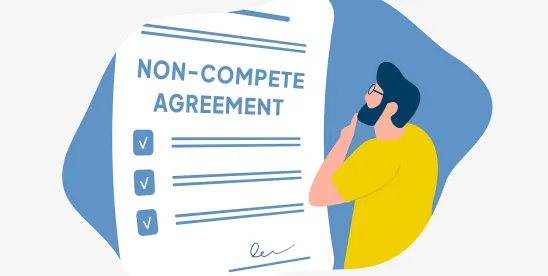On April 23, the U.S. Federal Trade Commission (FTC) voted to eliminate most non-compete clauses in employer-employee agreements. This rule is slated to become effective 120 days after its publication in the Federal Register, and companies will need to take affirmative steps to comply unless legal challenges delay its implementation.
The final rule, detailed in over 500 pages on the FTC's website, answers many of the common questions about the new regulation’s impact. We've sifted through this extensive documentation to highlight points critical to both employers and employees.
Why might the enforcement of this rule be delayed?
Legal challenges have already been initiated. Lawsuits filed by the U.S. Chamber of Commerce and other entities claim the FTC lacks the authority to issue this rule.
What are the main features of the FTC's rule on non-competes?
The rule broadly prohibits employers from imposing non-compete agreements, including on independent contractors, interns, and unpaid workers. The ban extends to all terms of employment that prevent workers from seeking or accepting employment elsewhere in the U.S. after their current employment ends. The rule applies to both contractual non-compete agreements, and non-compete polices contained in employee handbooks.
How does the rule affect existing non-compete agreements?
Employers must notify employees that existing non-compete agreements will no longer be enforceable under the new rule, which provides model language for this notification. However, the rule allows companies to enforce existing non-compete agreements with senior executives and those that resulted from a bona fide sale of a business.
Who is a senior executive?
The rule defines senior executive as a worker who was in a “policy-making” position, and who received total compensation of at least $151,164.00. To clarify the job duties test, the rule defines a “policy-making position” as a business entity’s president, chief executive officer, or the equivalent, or another “officer” of the company. The FTC explained that by incorporating the term “officer” in the definition of “senior executive”, it intends to apply such term to workers at the “highest levels” of a business entity. Notably, the senior executive exception does not apply to prospective non-compete agreements, but only current ones.
Are other restrictive covenants permitted?
Other restrictive covenants such as nondisclosure agreements (“NDAs”), proprietary rights and invention agreements (including trade secret agreements), non-solicitation agreements and no-hire agreements, as well as training repayment agreements, are not categorially banned by the rule. However, employers and employees should be mindful that overly broad restrictive covenants might run afoul of the non-compete ban if they function similarly to non-compete clauses. In other words, if an employer attempts to craft an NDA such that it has the same de facto effect as a non-compete, it will not be upheld under the new rule. Employers are also reminded that their NDA must pass muster under the recent decisions of the NLRB. (For more details regarding the NLRB, see our prior blog post.)
Can You Limit an Employee's Work Options While They're Still Employed by You?
Probably not. The Commissioner expressly explained the prohibition would be applicable to post-employment restraints (i.e., the restrictions on what workers can do after the conclusion of their employment, and not on what the worker may be prohibited from doing during employment with the employer).
You are involved in litigation alleging violation of a noncompete agreement. Do you now lose?
No. The rule does not apply where a cause of action related to a non-compete accrued prior to the effective date of the rule.
What happens if an employer violates this new rule?
Violating the rule is deemed an unfair method of competition under Section 5 of the FTC Act. Such violations can result in fines, penalties, and injunctive relief.
When will this rule go into effect, and what are the potential obstacles?
The rule will go into effect 120 days after its publication in the Federal Register (expected May 7, 2024, thus an effective date of September 4, 2024). However, enforcement may be delayed or barred by ongoing legal challenges, including those arguing the FTC lacks the authority to enforce such regulations.





 />i
/>i
